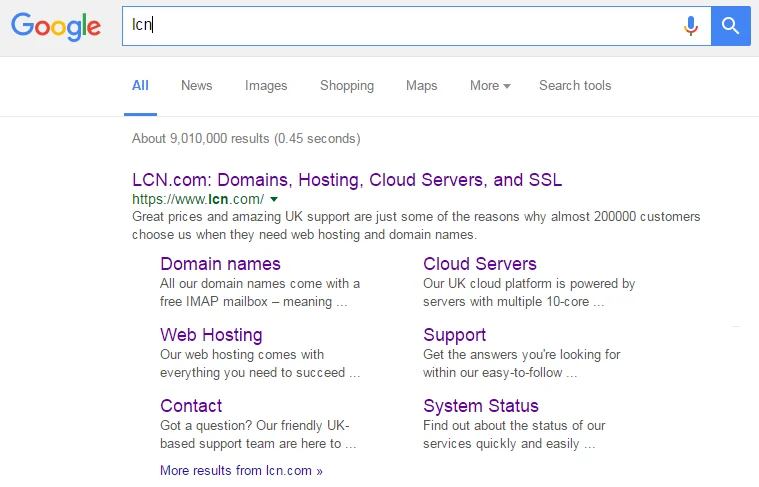What are search engines and how do they work?
Lesson 1 of 6 of our beginner's guide to SEO
Understanding search engines
In order to better understand the concept of SEO, it’s important to have a clear and precise knowledge of how search engines work.
Search engines such as Google scan the internet page by page, creating a gigantic index from the pages they discover.
When a search engine finds a link to another page, it follows that link and indexes the resulting page. Search engines continue to do this indefinitely, creating an ever-increasing index of web pages.
When you search using Google, you are not searching "the internet" as such – you’re actually searching Google's enormous database of indexed of web pages.
This is how Google can search through millions of sites and display the information back to you in just a couple of seconds.
When a user searches for information, the search engine uses a variety of algorithms to determine which websites are most relevant to that particular search — and which ones offer the best-quality content — before displaying a list of pages in order of relevance.
How we use search engines
People use search engines for all sorts of reasons - shopping, research and learning, entertainment, or even just killing time.
Shopping and research can be more or less one and the same online, as it’s commonplace for consumers to look for reviews of particular companies and products, and to compare prices between different retailers before making a decision to purchase.
Modern search engines have evolved according to the ways in which people use them.
In addition to providing links to regular web pages, a typical search results page will include links to videos, images, news, maps, and even scholarly articles.

Search engines as discovery tools
One key job of a search engine is to identify as many web pages as possible in order to provide you with an accurate search result.
To do this, search engines rely upon the use of automated software known as a web crawler (also referred to as Googlebot, or a spider).
Web crawlers visit web pages by following links found on other pages across the internet. They then index details about the page before following outbound links to find new pages.
By continuing this process, web crawlers deployed by the likes of Google and Bing can effectively crawl and index a large portion of the internet as a whole.
Ensuring that web crawlers find your web page is one of the single most important aspects of an SEO campaign.
After all, if search engines don't know you exist, they can't display your pages in search results!

Building search results
The most important role of the search engine, from the point of view of the end user, is to display links to pages that are highly relevant to the search term entered.
Using information gathered by web crawlers, search engines build lists of pages that match a particular search query.
This list is what the end user sees when they complete a query on a search page. There is still a lot of work, however, that goes on between the indexing of pages and displayed results.
Google and other search engines use complex algorithms to help determine relevance and quality.